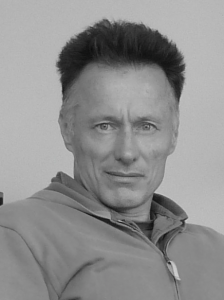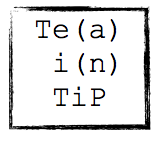Adrian Mackenzie was a Visiting Researcher at TiP under the Villum Fond Scheme from April to July 2014. In the interview, he reflects on his visit with the group, his wide range of research activities whilst here and gives us his impressions of Copenhagen.
Rachel: Hi Adrian, welcome to Te i TiP!
Can you tell us a little about where you’re coming from and what your visit is all about?

Adrian: I’m from the Sociology Department and Centre for Science Studies at Lancaster University. My home discipline is somewhere in the middle of sociology, media and cultural studies and philosophy. I’m prone to theory, but I really like the concrete messiness of empirical research. I was at TiP from early April through early July 2014 and my visit was funded by the Villum Fond Visiting Researcher Scheme. I gratefully acknowledge their support, and the work of Brit Ross Winthereik in securing the funding.
Rachel: So what kind of questions, problems of issues were you working on while you were visiting?
Adrian: My time in TiP and ITU was largely spent hunched over my laptop, which was often running hot. I spent much time working with digital data from a particular social media platform called
Github.com, a site used by millions of software development projects to work on coding. I have a couple of different interests in working with digital data derived from Github. First, I’m keenly interested in methodological developments associated with digital sociology, and in particular, how to develop ways of working with data streams in ways that don’t reduce social practice to the parameters of a predictive model. Second, I’ve long been interested in tracking device-specific forms of social life, and Github code repositories offer many different ways one might do that. It is packed with devices flashing different signals into contemporary cultures.
Rachel: Yes, I heard some of that work take shape at your keynote at the Danish Association for STS (DASTS) conference in Roskilde in June. So can you tell us a little about how you came to work on these topics, and what that trajectory has been?
Adrian: I think the work I’m doing at the moment is finally bringing together some really old interests in measurement and number, interests that took root in my undergraduate training in physics, with my more recent research trajectory as an STS-media researcher.
Rachel: So what were you up to when not hunched over your laptop?
Adrian: The more public activities I participated in while at TiP included running one PhD workshop entitled ‘Socialising Big Data‘ with colleagues from Goldsmiths College, Manchester, Warwick and Anglia Ruskin University, and another entitled ‘Data visualization and radical empiricism‘ with a colleague from University of NSW, Sydney. I had a chance to attend the final Nordic STS workshop, and some of the ‘Think Tank’ reading group sessions with TiP colleagues. I thoroughly enjoyed all of these events, and had some really interesting discussions along the way. I managed to chat with various TiP colleagues about their work on energy and e-voting in particular. I had a chance to go and meet colleagues in the Copenhagen Business School, University of Copenhagen, and Aarhuus University as well.
Rachel: Great to hear you got to take part in and make some things happen here and at other universities. Was this part of developing something new or ongoing work?
Adrian: My background project while at ITU was revising a monograph on machine learning, pattern recognition and data mining. This book has entailed a huge effort to come to grips with transformations in modes of knowing, prediction, anticipation and control in contemporary society. I’m hoping to finish this book in the next few months, and it should appear in 2015.
Rachel: We’ll certainly keep a look out for that! So can we ask you what you’ll miss about Copenhagen while you’re revising your monograph?
Adrian: It was a real pleasure to ride around the city on a bike. I rate Copenhagen bread highly. It’s perhaps on aggregate the best I’ve had. I’m missing many things — the harbour and sea, the parks, the bustle of the streets, the architecture, the museums (Davids Samling, upper floors), the music, the Metro, some of the beer, and some of the shops. Copenhagen is a brilliant city.
Rachel: We tend to agree! So, finally, what were the best things about being at the ITU and with the TiP group?
Adrian: It was nice to have that fruit basket on the table every Monday, but I mainly appreciated the relaxed and friendly interactions with TiP colleagues. As far as I can see, they generate a very welcoming atmosphere. I’m sorry if I ate too many bananas.

